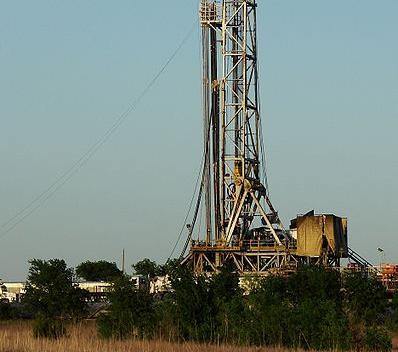Study Links Fracking to Sex Change in Animals

The debate about the rights and wrongs of hydraulic fracturing - "fracking" - to extract natural gas from shale rock looks set to become even more heated. Scentists in the United States have published a study claiming that many of the chemicals used in the process are "known or suspected endocrine disrupting chemicals" (EDCs).
EDCs have been linked with a number of conditions, including sex change in some animals. The study found that over 100 of the 750 chemicals used in fracking are EDCs and the quantity of EDCs found in water near "fracking" sites are higher than elsewhere.
The report, published in a journal called Endocrinology, was carried out by scientists from the University of Missouri's University's Department of Obstetrics, Gynaecology and Women's Health with colleagues from the US Geological Study.
One of the report's authors, Professor Susan Nagel, said: "I'm not an alarmist about this, but it is something the country should take seriously. With fracking on the rise, populations may face greater health risks from increased endocrine-disrupting chemical exposure."
I'm not an alarmist about this, but it is something the country should take seriously
Fracking has been hugely controversial ever since the process was first widely adopted. Scare stories about earthquakes and fire streaming from kitchen taps on one side have been countered by claims that fracking is clean, safe and the best solution to the energy problem - at least in the short to medium term.
The United States now leads the world in shale gas production, producing an estimated 22 million barrels per day in 2012 and leading to a rapid decline in carbon emissions, but environmentalists claim the reliance on natural gas will mean fewer resources being available for research into "clean" energy such as solar and wind.

So far shale gas extraction has been met with resistance in Britain, with even exploratory drilling opposed, such as the protests which took place at the Sussex village of Balcombe when Cuadrilla Resources attempted to carry out "flow tests" to assess the viability of fracking in the area.
Officially, Public Health England remains guarded about any major implications for public health, stating that as long as proper safeguards are met, the potential risks to public health seem low - but that developments need to be closely monitored.
© Copyright IBTimes 2025. All rights reserved.






















